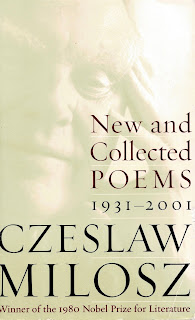Seamus Heaney
In a poem in "Electric Light", Seamus Heaney talked of "language that can still knock language sideways". This is what he did. He took ordinary words like "sod" and "drain" and "rot" and turned them to gold.
When he won the Nobel prize, in 1995, he was praised for "works of lyrical beauty and ethical depths which exalt everyday miracles and the living past". Heaney, who died in August aged 74, never called his poems "miracles", but he did talk about falling in love with the "voltage" of language. He wanted, he said, to write with "a musically satisfying order of sounds", and more than almost any poet of the past 50 years, he made English sing.
Famous Seamus, as he came to be known, scooped most of the big prizes for poetry, and sold more books than most of his peers combined. But if he seemed to retain the common touch in the way he wrote and spoke, this was only because he hid the art.
GOLDEN RULE "Don’t have the veins bulging in your biro." These words, from Heaney’s poem "Fosterage" (1975), echo the advice of his mentor, the novelist Michael McLaverty, to whom it was dedicated. Don't, in other words, show off. Make it look easy, even if it never is.
KEY DECISIONS To keep his poetry largely rooted in the landscape of his childhood, and to bring it so vividly to life that you can almost touch and smell it. Heaney used the sounds and smells and sights of the Northern Irish countryside to talk about family, history and myth. Most famously, in his poem "Digging", in his first collection, "Death of a Naturalist" (1966), he used them to talk about his vocation. He describes the "cold smell of potato mould, the squelch and slap" of the "soggy peat" his father and grandfather would dig, but says that he'll dig with his "squat pen".
STRONG POINTS Heaney is a storyteller. He takes the familiar and makes it strange. He does this partly by using verbs as nouns and nouns as verbs. He writes of "a sense...of glimpse and dapple" and of birds that "cuckoo your name across the fields". He also loves to stick words together—"wheat-straw", "dark-streaked", "white-pronged"—and to make them up. The word "enemy", he says in his poem "England's Difficulty", had "the toothed efficiency of the mowing machine". The poem, like so many of Heaney's, uses a real childhood memory to touch on politics and history, but it does so obliquely. His voice, he once said in a documentary, was given to him "by division". It was "a stealthy voice, a voice that spoke in codes". So you can read a Heaney poem a hundred times, and still find more in it.
FAVOURITE TRICK To plunge you straight into the visceral detail of an early memory, then suddenly take you to a place that almost feels—though it's not a word he’d rush to use—transcendent. In "Personal Helicon", he talks of "the smells/Of waterweed, fungus and dank moss", "soft mulch" and "slime" and then, in the last sentence of the last stanza, he pulls us away from that childhood, to what it's all about: "I rhyme," he writes, "To see myself, to set the darkness echoing."
ROLE MODELS Heaney cited Yeats, Wordsworth and Hopkins as influences, as well as Americans like Lowell and Bishop. His poetry is like nobody else's, but you can see shades of Lowell in some of the stories, and of Yeats in the singing line.
TYPICAL SENTENCE "All year the flax-dam festered in the heart/Of the townland; green and heavy headed/Flax had rotted there, weighted down by huge sods." (The opening lines of "Death of a Naturalist".)



Comments
Post a Comment